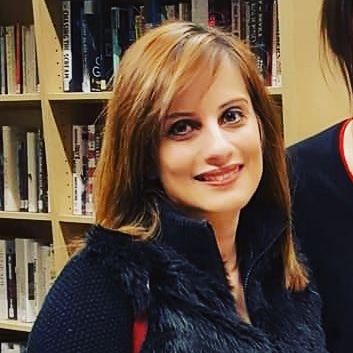Will this woman's violent murder be a turning point for Pakistan's gender-based violence?
In a country where violence against women and girls is rife, it's hoped that the brutal murder of Noor Mukadam, a 27-year-old diplomat's daughter, will force Pakistan to face up to its problem.

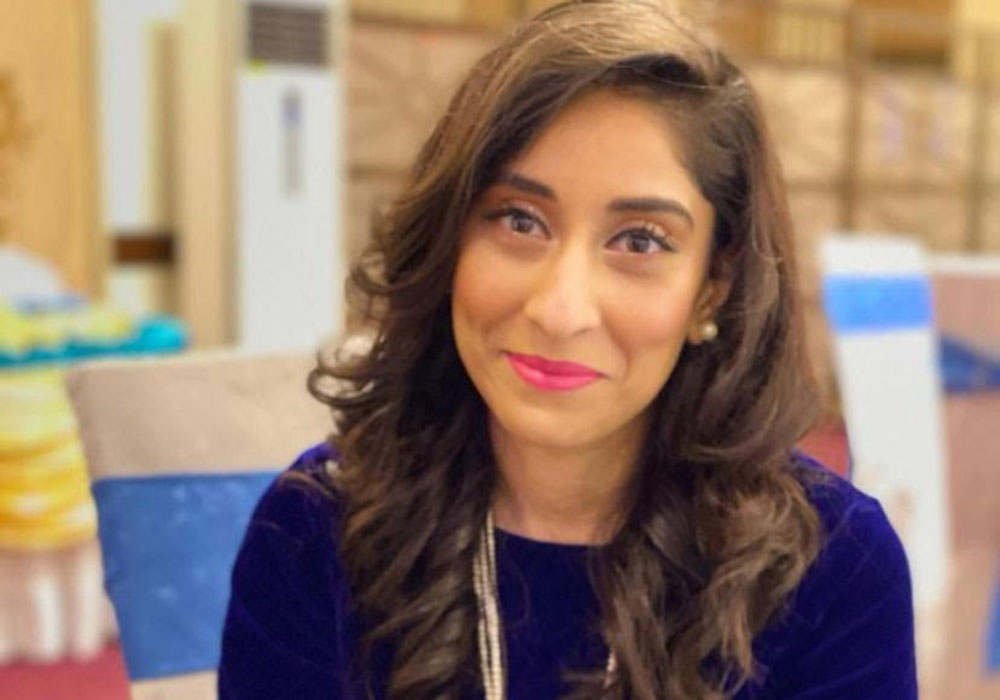
Celebrity news, beauty, fashion advice, and fascinating features, delivered straight to your inbox!
You are now subscribed
Your newsletter sign-up was successful
In a country where violence against women and girls is rife, it's hoped that the brutal murder of Noor Mukadam, a 27-year-old diplomat's daughter, will force Pakistan to face up to its problem.
Warning: This article contains descriptions of violence that some readers may find distressing.
It was the religious festival of Eid, and Iyla Hussain Ansari, 27 checked her phone for what felt like the hundredth time that morning. Despite living thousands of miles apart, she and her best friend Noor Mukadam were always messaging each other back and forth. But for the past few hours, Noor had been unreachable.
"Even though I was in New York, we were constantly in touch. I started panicking and began messaging friends to ask if they heard from her," Iyla tells me. "Last time I spoke to her, she was not herself. She was a shy and reserved person so it was hard to coax out from her what was wrong, but my gut feeling was something was not right."
Eventually, Iyla received the message she had been dreading. Police had discovered Noor’s decapitated body in an upmarket part of Islamabad. A post mortem revealed signs of torture, and a knuckle duster was recovered at the scene of the crime. DNA tests were being carried out to check for evidence of sexual assault.
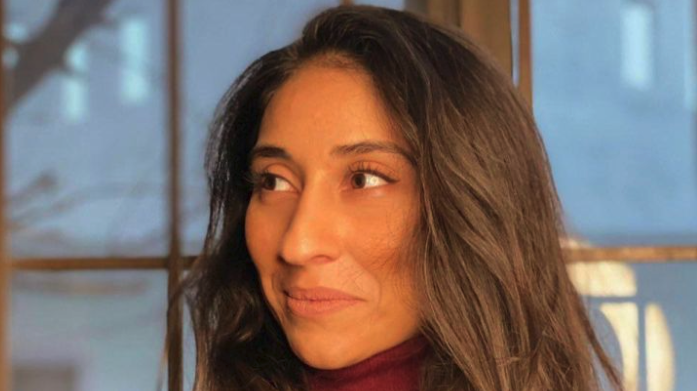
Police had arrested Zahir Zakhir Jaffer, the son of one of Pakistan's richest business tycoons, at the scene of the crime. He was being held on suspicion of pre-meditated murder. Noor and Jaffer both belonged to the small, tight knit community made up of the movers and shakers of Pakistani high society, whose lives were less like Malala and more like Made in Chelsea. They had known each other since they were teens, but had recently become close. However, Noor's friends had noticed she had become increasingly anxious in the weeks leading up to her death.
In court, police described how CCTV footage showed Noor jumping from a first story window in an attempt to escape, before appearing to have been dragged back into the apartment.
Celebrity news, beauty, fashion advice, and fascinating features, delivered straight to your inbox!
"When I heard what had happened, I was in shock. It was a searing pain. In this day and age, how can a girl be executed?" says Iyla.
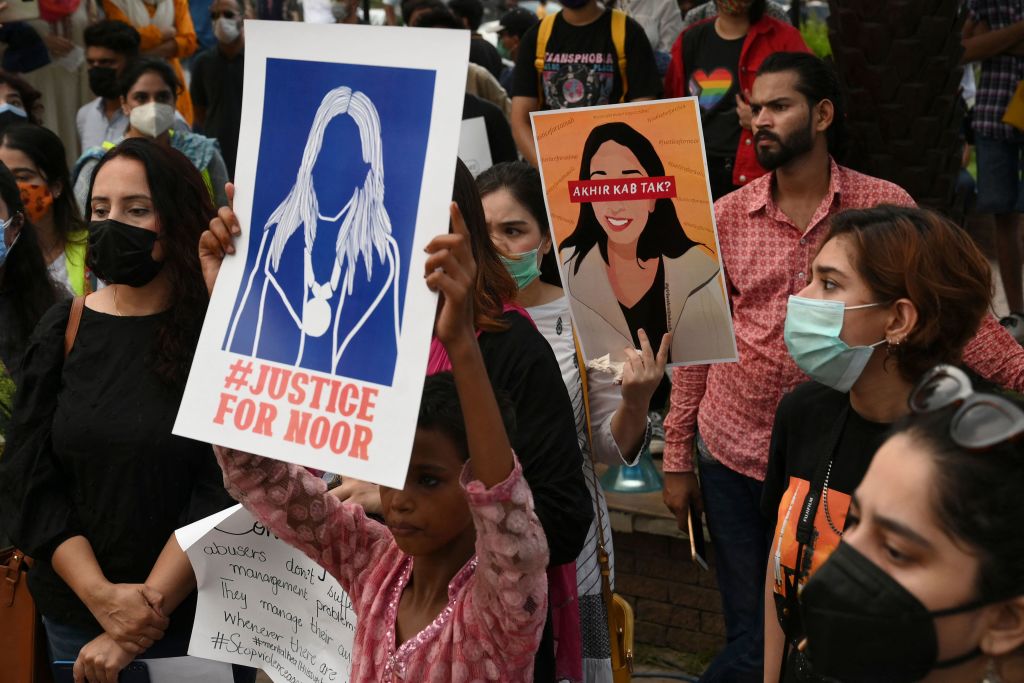
Pakistan has been rocked by a string of high profile murder cases in recent years, including the killing of social media star, Qandeel Baloch, and Hounslow law graduate, Mayra Zulfiqar, in June. However, the sheer brutality of this killing and the high profile of the families involved has turned the case into a cause célèbre, with many hoping it will be a turning point for the country's poor record on gender based violence.
Candlelit vigils have been held across the world, including one organised by Noor's best friend Kim Kearns outside their old school in South Dublin, where Noor had lived as a child when her father was Pakistani Ambassador to Ireland. Kim is now campaigning to raise awareness about the case.
"Noor was my first best friend. I made a diary of all our memories we shared," she tells me. "We even cut pieces of our hair out before Noor left to go home to Islamabad, so we would always be connected. I still have hers."
When Noor moved back to Islamabad, Kim says she was "heartbroken" and cried for weeks. "She would send me over Kohl Kajal eyeliner from Pakistan. We never lost contact wherever Noor was."
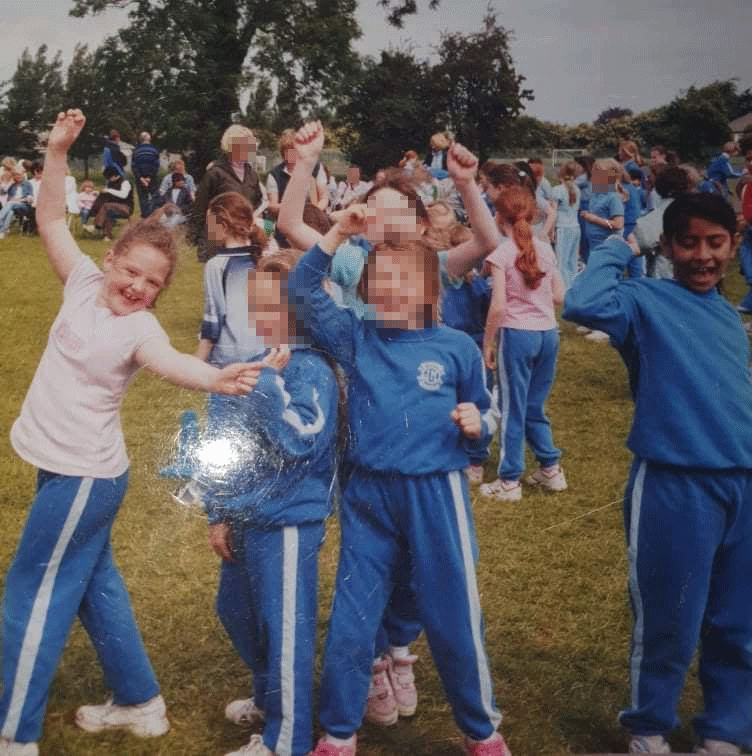
Kim discovered the horrific news of Noor's death when a neighbour who was also in touch with the Mukadam family knocked on her door just after midnight. She recalls screaming and crying when she heard. "I have never felt that pain in my life. My heart broke into a million pieces," says Kim. "I wish I could have done something. I still don't want to believe or accept this happened.
"The world failed her. For someone to be able to do something like this to a human being with a heart of kindness is just horrendous."
Noor's murder was one of three high profile cases in what was described as Pakistan’s bloodiest Eid. Women's activists have blamed the government’s failure to tackle the issue, after new laws to crack down on violence against women were put on hold following objections by religious conservatives just days before Noor's murder.
Noor herself was an activist, and had attended the women's rights Aurat March to mark International Women's Day in March. Organisers have since paid tribute to her. "We are tired of sending our thoughts and prayers. It's not enough. We have to use our voices. Pakistan is not a safe place for women," says Leena Ghani, one of the women behind the Aurat March.
"I don't want any more women to become an example or a hashtag for us to change. Why should the Noors of the world have to lose their lives for us to learn our lesson? Why does a woman have to die for us to change?
"I am so angry and hurt," Leena tells me.
Whether Noor’s case becomes the turning point that women so desperately need and want, remains to be seen. But one thing is for certain: her loved ones are determined to make sure that Noor is not forgotten. "Noor was all for speaking up for other people’s rights," says Kim. "So I will speak on behalf of Noor to raise and scream awareness."
Alia Waheed is a freelance journalist specialising in writing about issues affecting women in the Indian subcontinent for a variety of national newspapers and magazines. She was inspired to become a journalist after buying Marie Claire as a teenager as it was the only women's magazine which covered international stories about women. As a writer, her aim has always been to give a voice to the voiceless, whose stories go unheard. Her work has been featured in The Guardian, The Telegraph, The Times, Grazia, Cosmopolitan and Glamour among others. She has an MA in Creative Writing and was nominated for a British Journalism Award last year.
